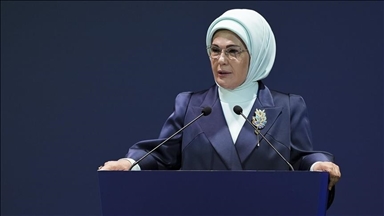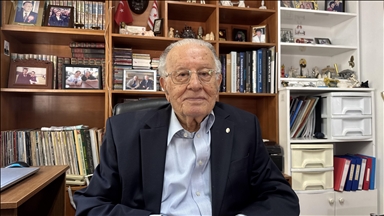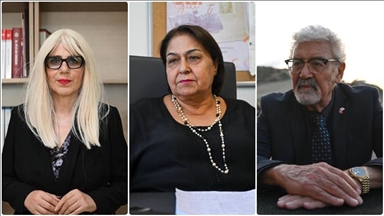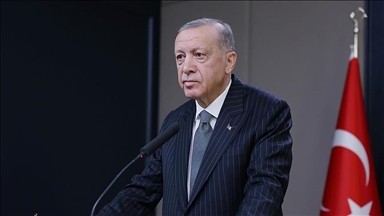Türkiye-UK Islamic finance collaboration gathers pace with strategic momentum
Türkiye’s role as a regional bridge and London’s global financial reach combine to accelerate growth in Islamic finance sector
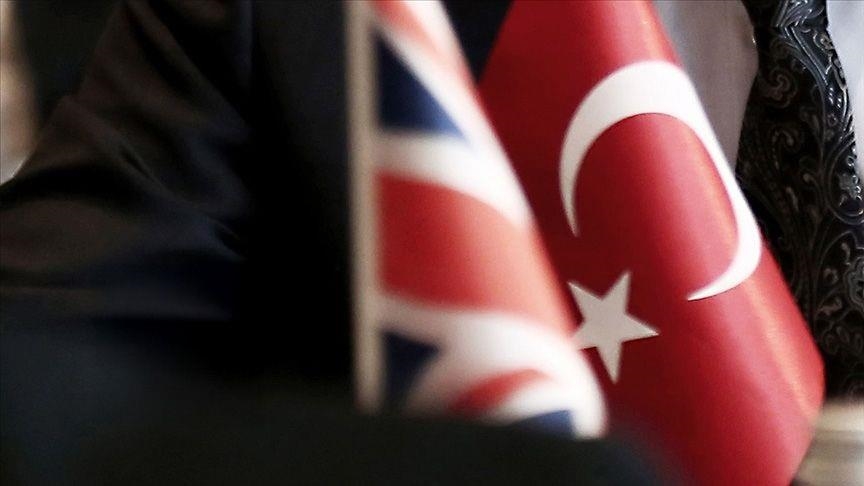
LONDON
In a world grappling with economic volatility, war-induced inflation and the rising cost of capital, an alternative financial system grounded in ethics and risk sharing is attracting renewed attention.
Islamic finance — a system that prohibits interest, discourages speculation and demands real asset backing — is seeing a global resurgence. And two countries, Türkiye and the UK, believe they’re ideally placed to lead the charge.
Turkish Finance Minister Mehmet Simsek recently called Islamic finance “structurally better equipped to address uncertainty and ambiguity,” adding that its core principles make it more stable in times of global financial stress.
“Islamic finance tends to be, relative to its conventional peers, more resilient,” Simsek said. “It provides you more stability, liquidity as a part of risk sharing. This is really the essence in terms of your profit and loss arrangements.”
While the sector still represents a modest share of global finance — around 1% of total assets — Simsek pointed out that Islamic finance has expanded elevenfold since the year 2000.
In Türkiye, its footprint is larger than the global average, making up 8% of banking assets and over 12% of the capital markets, he noted.
London sees long-term role
Across the Channel, UK trade officials say the ethical basis of Islamic finance is appealing not just to Muslims, but to a broader group of investors looking to align money with values.
“There are lots of people from around the world who are taking great interest in the values that are underlying their investments,” said Ben Aldred, Deputy Trade Commissioner for Eastern Europe and Central Asia at the UK’s Department for Business and Trade.
“This is not just a new thing for the UK. This is something that we've been doing for at least a decade,” he told Anadolu.
London — still one of the world’s most significant financial centers — has hosted several Turkish government Sukuk (Islamic bond) issuances.
Aldred said he hopes to see even more Turkish institutions using London as a base to tap global capital in a Sharia-compliant way.
“We're hoping that there will be more issuances from Turkish financial institutions out of London,” he added. “It makes economic sense to do so, and we're really seeing that momentum now,” he noted.
For Islamic finance to go mainstream, however, markets need liquidity, said Hugh de Lusignan, head of financial services at the UK Department for Business and Trade.
“We think it's important to create what's called the yield curve,” he said, referring to the need for regular bond issuance that makes pricing more transparent and predictable. “That makes it easier for people to invest.”
He pointed to a recent Sukuk issuance by the Türkiye Wealth Fund (TWF) as a sign of strong international appetite.
“The fact that it was so oversubscribed proves that there's a big international market for these types of issues, even though the circumstances might look difficult.”
TWF, the asset-backed development fund of Türkiye, marked its landmark $750 million Sukuk issuance in October 2024 during a Market Open Ceremony at the London Stock Exchange (LSE).
The Sukuk issuance, with a return rate of 6.95%, was oversubscribed by 14 times, setting a record in the history of Sukuk issuances.
Following the success, TWF executed a re-tap Sukuk issuance in January 2025, increasing the total size to $1 billion.
Türkiye’s gateway role
For the UK, Türkiye is more than just a partner — it's a bridge. Positioned between Europe, the Middle East and Central Asia, Ankara is seen as a strategic hub for the spread of Islamic finance.
“Türkiye is in exactly the right position,” de Lusignan said. “There’s a lot of growth in that area from countries that are interested in expanding Islamic finance opportunities...and the banks are thinking internationally.”
The global Sukuk market is on course to exceed $1 trillion in outstanding volumes in 2025, according to Fitch Ratings.
Sukuk are expected to remain a key component of the debt capital markets (DCM) across numerous Organization of Islamic Cooperation (OIC) countries and will continue to play a significant role in emerging markets (EM).
In 2024, Sukuk accounted for 12% of all EM US dollar debt issuance excluding China, underlining their increasing global relevance.
Sukuk were 25% of total dollar DCM issuance in the core markets of GCC countries, Malaysia, Indonesia, Türkiye and Pakistan.
Anadolu Agency website contains only a portion of the news stories offered to subscribers in the AA News Broadcasting System (HAS), and in summarized form. Please contact us for subscription options.



